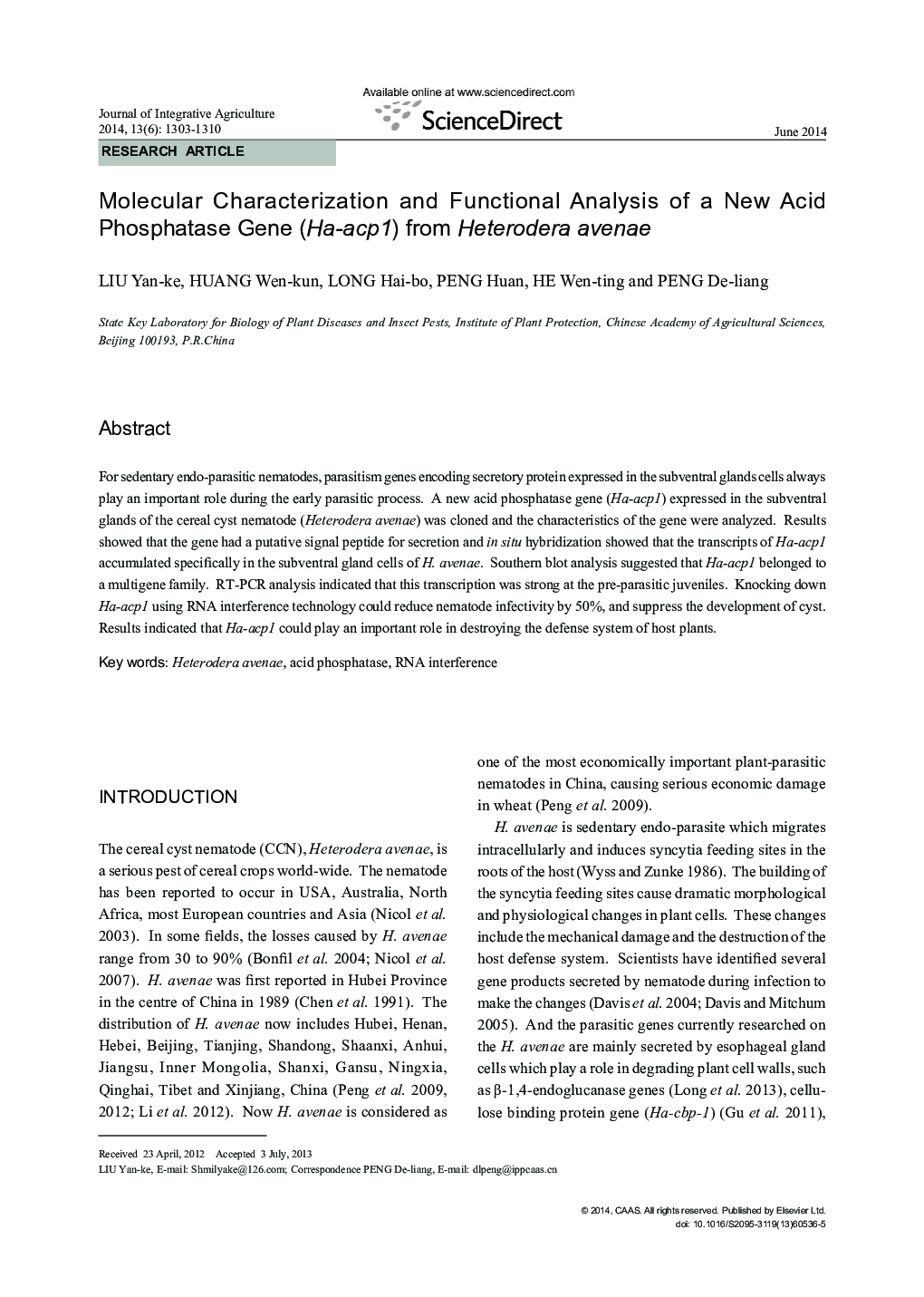| Article ID | Journal | Published Year | Pages | File Type |
|---|---|---|---|---|
| 4494552 | Journal of Integrative Agriculture | 2014 | 8 Pages |
For sedentary endo-parasitic nematodes, parasitism genes encoding secretory protein expressed in the subventral glands cells always play an important role during the early parasitic process. A new acid phosphatase gene (Ha-acp1) expressed in the subventral glands of the cereal cyst nematode (Heterodera avenae) was cloned and the characteristics of the gene were analyzed. Results showed that the gene had a putative signal peptide for secretion and in situ hybridization showed that the transcripts of Ha-acp1 accumulated specifically in the subventral gland cells of H. avenae. Southern blot analysis suggested that Ha-acp1 belonged to a multigene family. RT-PCR analysis indicated that this transcription was strong at the pre-parasitic juveniles. Knocking down Ha-acp1 using RNA interference technology could reduce nematode infectivity by 50%, and suppress the development of cyst. Results indicated that Ha-acp1 could play an important role in destroying the defense system of host plants.
